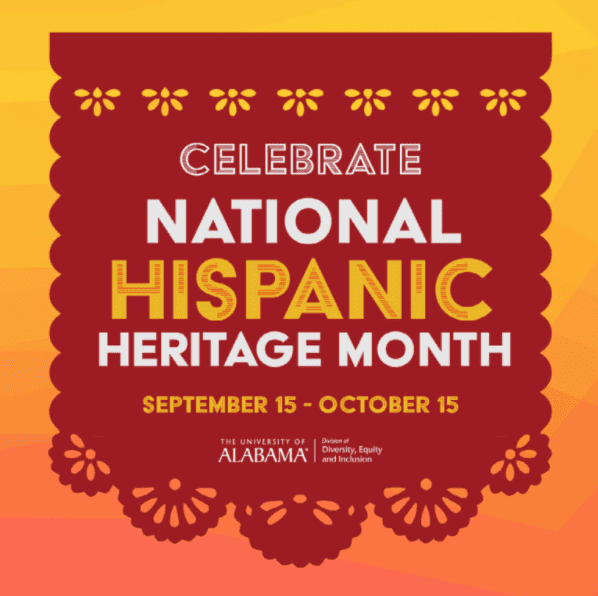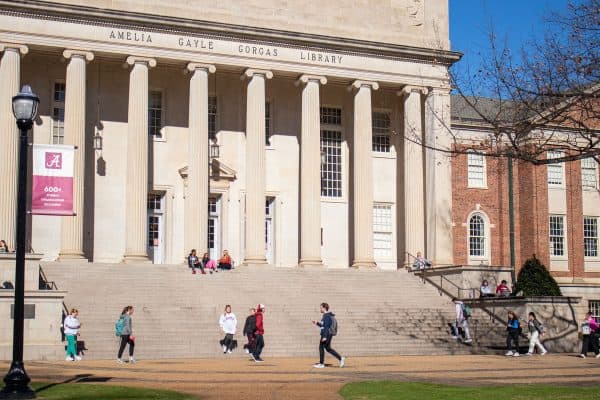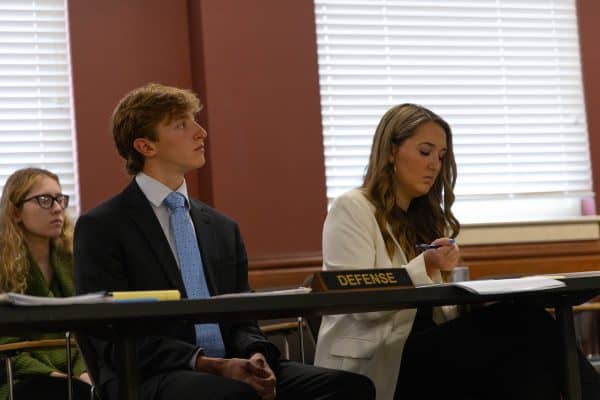Hispanic Heritage Month is over, but cultural awareness is not
October 13, 2021
Hispanic Heritage Month is drawing to a close on Friday, Oct. 15. The University of Alabama has continued its celebration with a multitude of events, organizations and individuals that aim to honor the contributions of the Hispanic community and call attention to the hardships and prejudices held against them throughout history and the present.
Many see Hispanic Heritage Month as a time not only to commemorate the Hispanic community, but also to create dialogue and an opportunity for learning.
“Don’t refrain from using this opportunity to learn more about the people around you,” said Sarah Moody, the director of the Latin American, Caribbean and Latinx Studies program.
The University of Alabama has about 2,000 Hispanic students, making up 5.3% of the student population.
Although it is referred to as Hispanic Heritage Month, Moody said cultural awareness should be a lifelong thought rather than an annual celebration.
“At UA, [Hispanic/Latino Heritage Month] means that there are more events driving the conversation of the Hispanic/Latinx community,” Moody said.
The Division of Diversity, Equity and Inclusion featured events over the course of the month, including movies, book discussions, art exhibitions and speakers.
Even though Hispanic Heritage Month is almost over, there are still ongoing events that students can participate in, such as the Hostile Terrain 94 Exhibit in Maxwell Hall, which is open until Friday, Oct. 15. The exhibit displays over 3,200 toe tags that symbolize migrants from the 1990s to 2019 who died attempting to cross Arizona’s Sonoran Desert.
The Division of DEI was not alone in its celebration. On Wednesday, Oct. 6, the Women and Gender Resource Center hosted Borderless, a panel on the subject of immigration, at the UA Student Center. The WGRC held the discussion to “dispel stereotypes and misinformation surrounding the issue of immigration.”
“We wanted the people participating in this discussion to be able to share their real life, often painful, experiences in order for people to be more aware of the actual circumstances that surround immigration in this country,” the organization said.
Students can get involved through clubs like the Hispanic-Latino Association and Las Doñas, which both focus on strengthening the community on campus.
Currently, Marcella Martinez, a junior majoring in economics and political science, and Pedro Reyes, a junior majoring in political science and criminal justice, are reintroducing the Hispanic-Latino Organization to campus. They plan to have the organization active next year.
“Don’t be afraid to try new things,” Moody said. “Branch out. If you’re just curious, simply check out what opportunities this campus has to offer. Go with a friend, if that helps. If you have any interest in any events or classes relating to Latin America, then go for it; it’s worth giving a try.”
Questions? Email the Culture desk at [email protected].











